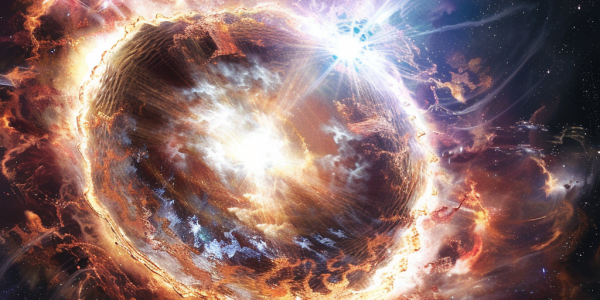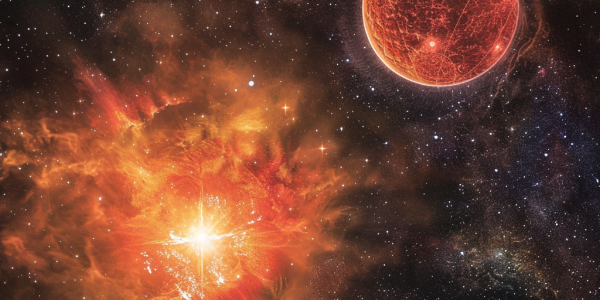New Insights into FU Orionis: A Young Star’s Extreme Conditions and Planet Formation Challenges
A groundbreaking study using Hubble Space Telescope data reveals that FU Orionis, a young star 1,360 light-years away, exhibits extreme temperatures of approximately 16,000 Kelvin. This discovery raises critical questions about rocky planet formation in such harsh conditions. Researchers highlight the star’s rapidly spinning accretion disk, which creates intense heat and instability, complicating the development of Earth-like planets. These findings not only enhance our understanding of stellar evolution but also illuminate the intricate processes governing planet formation in the universe.
New Study Reveals Betelgeuse’s Brightness Changes Linked to Companion Star
Recent research led by the Flatiron Institute reveals that Betelgeuse’s brightness fluctuations may be caused by a companion star, affectionately named ‘Betelbuddy.’ This groundbreaking study challenges previous notions of the star’s imminent supernova, suggesting instead that its variability is linked to complex interactions in binary systems. Understanding these dynamics is crucial for predicting Betelgeuse’s eventual fate and contributes to our broader knowledge of stellar evolution.


